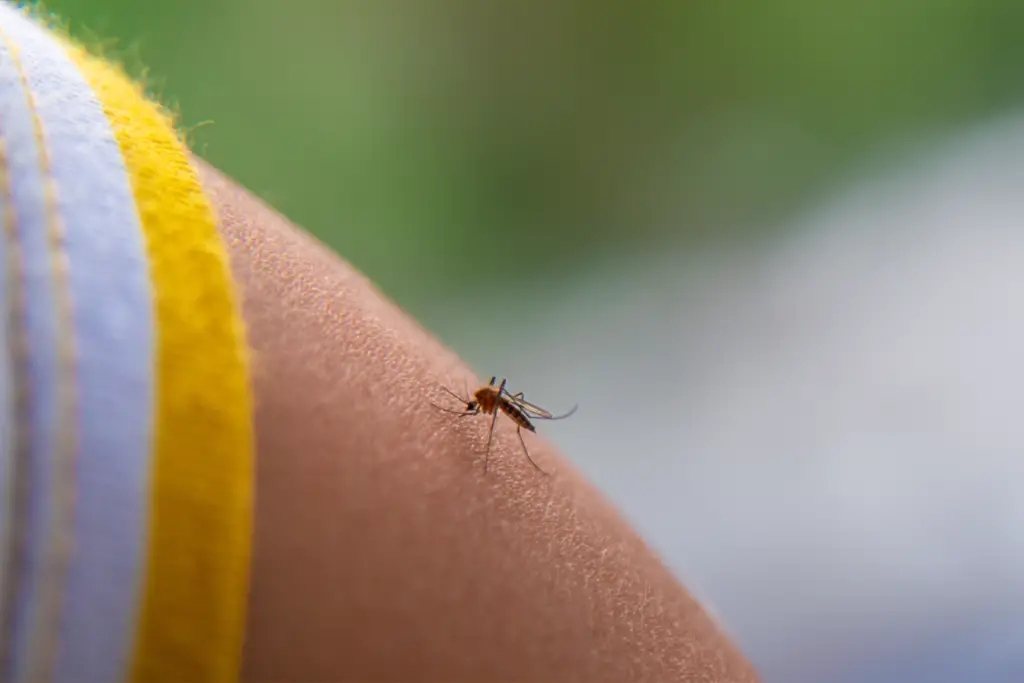
When warm weather arrives, so do mosquitoes. While you might reach for insect repellent for yourself, you may wonder if these pests bother your furry friend too. The short answer is yes, mosquitoes can and will bite dogs. Similar to humans, dogs are warm-blooded creatures, which makes them attractive targets for mosquitoes looking for a blood meal. The bites can be just as irritating for your pup as they are for you, leading to uncomfortable itching and scratching.
Understanding the risks associated with mosquito bites on dogs is critical because they’re not just a nuisance; they can transmit diseases. For instance, the most well-known condition spread by these insects is heartworm disease, which can be serious and sometimes fatal for dogs. But don’t worry, preventive measures exist, and there are simple ways to protect and treat your dog from these pesky bites. From topical repellents to heartworm medications, you have options to keep your dog safe and comfortable.
Understanding Mosquito Behavior
Before protecting your dog from these pests, you should understand what attracts mosquitoes and how they feed.
Mosquito Attraction Factors
Mosquitoes are drawn to specific factors that signal potential feeding grounds. Carbon dioxide (CO2), which you and your pets naturally exhale, is a major attractant. Another key factor is body heat; the warmer the body, the more likely it is to be targeted by these insects. Other elements include body odors and movement.
Feeding Habits of Mosquitoes
Female mosquitoes are the ones that seek blood, as they require the protein to produce eggs. They use a specialized mouthpart called a proboscis to pierce the skin and siphon blood. While they prefer humans, they will bite dogs if given the chance. When feeding, they inject saliva containing anticoagulants to prevent the blood from clotting, which can cause the characteristic itchy, red bumps.
Mosquito Bites and Dogs
Mosquitoes can indeed bite your dogs, causing discomfort and potentially transmitting disease. It’s essential for you to be aware of the dangers these bites pose and how you can protect your furry friend from them.
Risks of Mosquito Bites to Dogs
Mosquito bites aren’t just annoying for your dog; they can also be harmful. When a mosquito bites, it may transmit heartworm larvae which can result in heartworm disease, a serious condition affecting your dog’s heart and lungs. Moreover, the bites themselves can cause your dog irritation and allergic reactions, especially if they are sensitive to mosquito saliva.
Preventing Mosquito Bites in Dogs
Prevention is your best strategy against mosquito bites. You can minimize the risks by:
- Restricting outdoor activities during dusk and dawn, which are peak mosquito hours.
- Eliminating standing water around your home, as these are mosquito breeding sites. Be thorough in checking for any water collected in items like plant saucers or pet bowls.
- Using vet-approved mosquito repellents specifically designed for dogs.
- Investing in protective gear, such as dog-safe insect-repellent shirts or bandanas, for added defense during walks.
Protecting your dog from mosquito bites does not only contribute to their comfort but also to their health by preventing diseases associated with these pests.
Treatment and First Aid
When your dog has been bitten by a mosquito, the right treatment and first aid can reduce discomfort and prevent infection. Here’s how you can identify and treat mosquito bites on dogs.
Identifying Mosquito Bites on Dogs
A mosquito bite on your dog might appear as a small red bump, sometimes accompanied by swelling. Typically, it will be itchy for your dog, and you might notice them scratching, licking, or biting the area. It’s important to monitor the bite site for signs of excessive irritation or infection, such as increased redness, warmth, or discharge.
First Aid and Treatments for Bites
Immediate Care: If you notice your dog is irritated by a mosquito bite, you can start with a cool saltwater compress to alleviate the itch.
Reduce Itching: Offer your pet relief from itching by applying a cold compress or a thin layer of aloe vera gel to the affected area, ensuring that it is safe for your dog and that they cannot lick it off.
Prevent Scratching: To prevent your dog from scratching the bite, consider having them wear a loose shirt or fitting them with an Elizabethan collar.
Infection Prevention: Keep the bite clean to prevent infection. If the bite continues to cause your dog distress or shows any sign of infection, consult a veterinarian for appropriate care.
Frequently Asked Questions
Navigating the concern of mosquitoes biting your canine friend, you’ll find key information on treatment, prevention, and the associated risks. Understanding these can help keep your dog healthy and comfortable.
How can you treat mosquito bites on dogs?
If your dog gets bitten by a mosquito, you can apply a cold compress to soothe the itching and reduce swelling. Monitor the bite for signs of infection or an allergic reaction and consult your vet if you notice any unusual symptoms.
What are the best ways to prevent mosquitoes from biting dogs?
Reducing mosquito exposure is essential. Eliminate standing water around your home, use pet-safe repellents, and consider mosquito-proofing your yard to keep your dog bite-free.
Are dogs with thick fur still at risk of mosquito bites?
Yes, even dogs with thick fur can be bitten. Mosquitoes can target areas with thinner fur, such as the belly or ears, so it’s crucial to use preventive measures regardless of fur thickness.
What natural methods can keep mosquitoes away from dogs?
Natural methods to deter mosquitoes include using essential oils like lavender or lemon eucalyptus, ensuring proper yard maintenance to reduce breeding grounds, and incorporating plants that repel mosquitoes into your landscaping.
What are the consequences of mosquito bites for dogs?
Mosquito bites may lead to discomfort from itching and swelling, but more importantly, they can transmit heartworm disease, which is potentially fatal. Always stay vigilant with heartworm prevention practices.
Can dogs be protected from mosquitoes without using chemicals?
Certainly, you can protect your dog from mosquitoes using non-chemical approaches such as mosquito nets around sleeping areas, installing screens on windows and doors, and using natural repellent options like certain safe-for-pet sprays or wipes.
Driven by a passion for those tiny creatures that rule our world, we at Bug Domain strive to be your go-to resource for information on insects.




